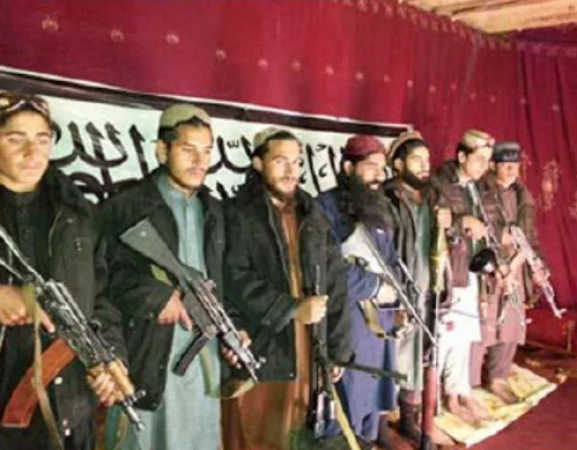
Islamabad: The Pakistani Taliban, also known as Tehreek-e-Taliban Pakistan, or TTP, came under immediate suspicion after a suicide bomber decimated a mosque inside a police compound in Peshawar, Pakistan, on Monday.
A commander for the group, Sarbakaf Mohmand, took credit for one of the deadliest assaults on security forces in recent months in a tweet.
However, more than ten hours later, TTP spokesman Mohammad Khurasani disassociated his organisation from the bombing, claiming that it was against TTP policy to target mosques or other places of worship. He also warned that those who engaged in such behaviour could face retaliation. He said nothing about the reason a TTP commander had taken credit for the bombing.
Also Read: Sichuan, China, will eliminate its three-child limit as birth rates decline
The TTP's denial also followed the Afghan Foreign Ministry's condemnation of attacks on worshippers as being against Islamic tenets. The Taliban rulers in neighbouring Afghanistan, who are providing protection for the TTP leadership and fighters, have already strained relations with Pakistan. Consider the Tehreek-e-Taliban Pakistan, which has been fighting an insurgency there for 15 years:
The TTP was formally established by Pakistani militants in 2007 when various illegal organisations decided to cooperate against Pakistan and support the Afghan Taliban, who were battling US and NATO forces. These militants were enraged by Pakistan's collaboration with Washington in the fight against terrorism.
The TTP, which has long used Khyber Pakhtunkhwa, a province bordering Afghanistan, as a base, as its base of operations, calls for more stringent enforcement of Islamic law, the release of its members who are being held by the government, and a decrease in Pakistani military presence there.
Also Read: Xinjiang region of northwest China is shaken by an earthquake
Since unilaterally terminating a cease-fire with the government in November following the failure of months of talks, hosted by the Taliban leaders of Afghanistan in Kabul, the TTP has increased its attacks on Pakistani soldiers and police. The Khyber Pakhtunkhwa province's capital city of Peshawar is where the TTP's fighters are frequently targeted by police operations.
The TTP, which shares the same ideologies as the Afghan Taliban but is distinct from them, grew more powerful after that group's takeover of Afghanistan in August 2021.
TTP members previously had places to hide in Afghanistan and Pakistan's tribal northwest, but they mostly lived as fugitives. But once the Afghan Taliban gained control, they began blatantly protecting the TTP. Additionally, TTP fighters and leaders who had been detained in Kabul by earlier administrations were freed by the Afghan Taliban.
The Taliban have vowed time and time again that they will not permit the TTP or anyone else to launch attacks from Afghan territory against Pakistan or any other nation. However, according to Pakistani officials, there is a discrepancy between the Afghan Taliban's statements and their actual behaviour, as they have the ability to prevent the TTP from carrying out attacks inside the nation but are failing to do so.
According to Abdullah Khan, a senior defence analyst and managing director of the Pakistan Institute for Conflict and Security Studies in Islamabad, the leadership of the Pakistani Taliban has publicly declared their allegiance to the leader of the Afghan Taliban.
But he added that they have their own objectives and plans. Similar to the Afghan Taliban's goal of driving out foreign forces, the TTP's operations have primarily targeted Pakistani forces. Khan anticipates an increase in militant violence in Pakistan over the next few weeks and months.
Since the TTP broke a months-long cease-fire with the government in November, there have been more militant attacks in Pakistan than there have been in the previous 20 years. Regular shootings and bombings are carried out by the Pakistani Taliban, particularly in the inhospitable northwest of Pakistan, which was once a TTP stronghold.
Also Read: Pricey onions in the Philippines turn a staple food into a luxury
Residents of North and South Waziristan, now two districts in Khyber Pakhtunkhwa, which were once tribal regions, are now afraid of a potential military operation as a result of the violence. Interior Minister Rana Sanaullah Khan told the independent Geo news channel hours after Monday's mosque bombing that Afghan Taliban leaders must uphold their promise to the international community not to permit anyone to use their territory for attacks against other countries.